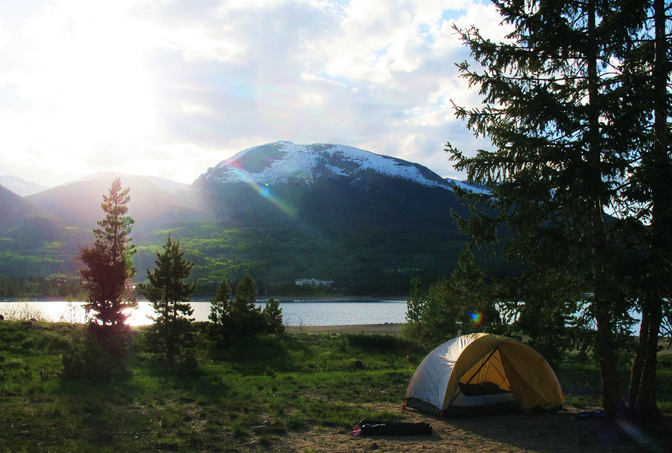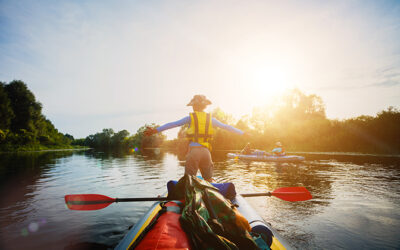Five Colorado camping safety tips
Colorado is the perfect place to enjoy the outdoors. From hiking trails to mountain biking to exploring glacial lakes, summertime in Colorado is truly spectacular. While most camping trips are filled with fun, memory-making moments, it is important to remember that dangers exist in the great outdoors. Take some time to learn more about camping safety.
Before you pack up the tent and supplies and head for a campsite, here are five camping safety tips to help make sure everyone stays safe during your outdoor adventure.
-
Be prepared for unpredictable weather.
Colorado, especially during the summer months, can experience rapidly changing weather conditions. Remember to pack for a variety of weather possibilities. Bring warm clothing and blankets for cold temperatures, and plenty of water and sunscreen for high temperatures. Also keep in mind that thunderstorms often arrive with little warning, turning sunny skies to dark clouds that bring rain and dangerous lightning. If you are above the tree line when a storm arrives, descend to a lower elevation as quickly and safely as possible.
-
Keep gas stoves and heating units away from tents.
Cooking on a camping trip should always be done a significant distance away from tents, sleeping bags and other flammable belongings. If the weather is cold, it is best to layer on the blankets instead of using a portable heating unit inside the tent because of the risk of fire and burns.
-
Understand the risk of wildfire.
Before you leave for your trip, check the Colorado State Forest Service Wildfire Risk Viewer. If you plan to build a campfire, take precautions to be sure the fire is safely contained to prevent injuries to people or damage to the environment. Follow rules on any posted signs about where campfires are permitted. Choose a site that is away from tents, trees and hanging branches. Never build a campfire when the conditions are hot, dry and windy.
-
Be aware of wild animals.
Creatures like bears, mountain lions and elk are often unafraid of approaching humans at a campsite, especially if they smell food. Make sure you put food away in sealable containers to reduce the chance that animals will pick up the scent. If you are camping, place food either in your car or high up in a tree, far away from your campsite. Consider carrying bear spray.
-
Use the buddy system.
Never camp alone. Even if you are seeking quiet and downtime in the outdoors, it is important to have at least one other person with you who can help if any emergencies arise.
What happens if you are injured while camping?
Spending time in the outdoor, often rugged, Colorado terrain can be risky. The same things that make it so appealing, like the mountainous landscape, can leave you open to injury. Sadly, there have been many injuries and deaths while attempting to climb our famous 14ers and exploring other areas.
If tragedy strikes, who is responsible? In Colorado, the answer to that question is not always clear.
The Colorado Governmental Immunity Act prohibits lawsuits against any state-government agencies, with few exceptions. When injury or wrongful-death lawsuits are allowed to proceed, state law limits the amount of damages that can be awarded.
People who sustain injuries on land that is defined as “unimproved property” may be unsuccessful at recovering damages. Unimproved property refers to land in its natural state, like trees, rocks, cliffs and bodies of water. Courts have often ruled against plaintiffs who were injured because of falling rocks or tree branches, citing the unimproved-property clause.
However, when an injury occurs in an area that is deemed to be in “dangerous condition,” the outcome may be very different. Government agencies are required to maintain facilities that are safe, and when conditions are not, they may be liable for injuries.
If you have been injured while camping outdoors, it is important to consult an experienced attorney. Cave Law is familiar with the details of Colorado law. Navigating injuries on what appear to be public lands can be tricky. You will need a professional to take the lead to determine if you are eligible for economic recovery.
We are here for you.
Don’t wait to contact us if you are injured on a camping trip or other outdoor excursion. We are ready to work with you to determine the best way to pursue damages, and we offer a free consultation. Our attorneys are available in person, on the phone or via Zoom. If your injuries prevent you from communicating with us in those ways, we will come to you.
Contact Cave Law today for your free consultation and let us take care of all the details.





